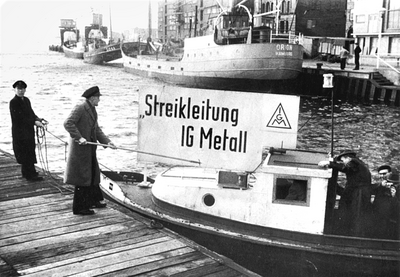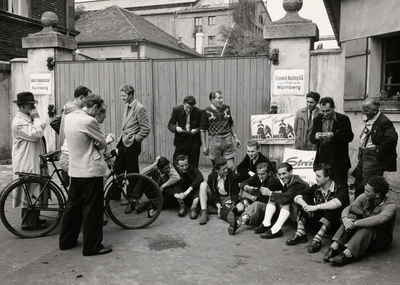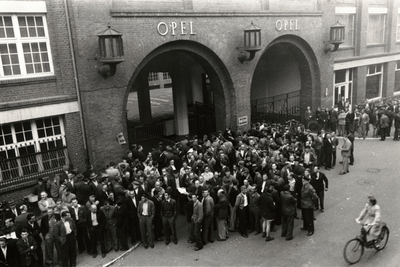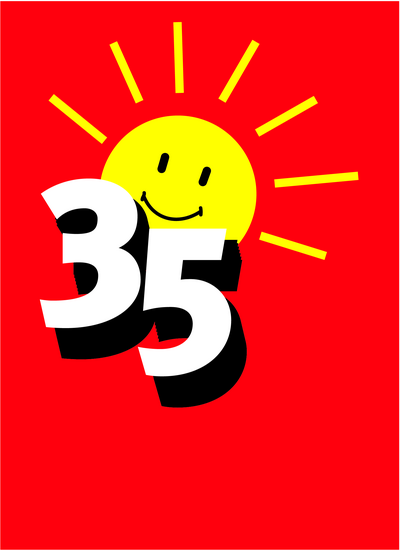
Our history
IG Metall from the German Empire to the present day
Our trade union was founded in 1949. Since then, we have campaigned nationally and internationally for fair living conditions, living wages and good work.
The German Metalworkers' Association (Deutscher Metallarbeiter-Verband)DMV), one of the most important predecessor organizations of today's IG Metall, was founded back in 1891. The association quickly developed into the largest single German trade union in the German Empire and the Weimar Republic.

Supporter of the young democracy
After the fall of the Kaiser during the revolution of 1918, Germany became a parliamentary democracy. The trade unions campaigned for the preservation and expansion of this young democracy. However, the global economic crisis, which also hit Germany at the end of the 1920s, weakened the power of the trade unions. The socio-political successes of the early years were gradually dismantled.
The division of the trade unions into different political tendencies at the time prevented workers from taking a united stand against National Socialism. Nevertheless, workers paid a high price for their resistance to the National Socialist dictatorship.

A home for all workers: the trade union
After the end of the Second World War, new trade union work emerged from within the companies. At the same time, trade unions began to be set up according to the principle of a single trade union. They were open to all employees - regardless of political affiliation or denomination. Workers, employees and civil servants alike found their common home in the new German trade unions.
The German Trade Union Confederation (DGB) was founded in Munich in 1949 as an umbrella organization to which IG Metall also belonged. IG Metall was founded in the same year and began its work in Frankfurt am Main in 1950.

Historic successes: five-day week, continued pay and 35-hour week
In 1956, IG Metall pushed through the five-day week and fought for sick pay for workers in a 16-week strike. In 1984, after six weeks of industrial action, the 35-hour week was introduced.
After the fall of the Berlin Wall in 1989, the trade unions supported the development of unity. With their policies, they made a significant contribution to bringing working and living conditions in East Germany into line with those in West Germany.
At the end of the 1990s, IG Metall merged with the textile-clothing (GTB) and wood and plastics (GHK) trade unions. The name IG Metall was retained.

Present day: Safety in transition
Today, IG Metall is the largest single trade union in Germany with around 2.2 million members. It organizes employees in the iron and steel, wood and plastics, metal and electrical, textile services and various skilled trades sectors.
One of our central tasks is to strengthen collective bargaining coverage and work towards greater fairness in the workplace and society. We are also increasingly concerned with the demand for qualifications and more time autonomy, as well as shaping the digital world of work. Added to this is the transformation of industry, which we want to shape in a social, ecological and democratic way.
